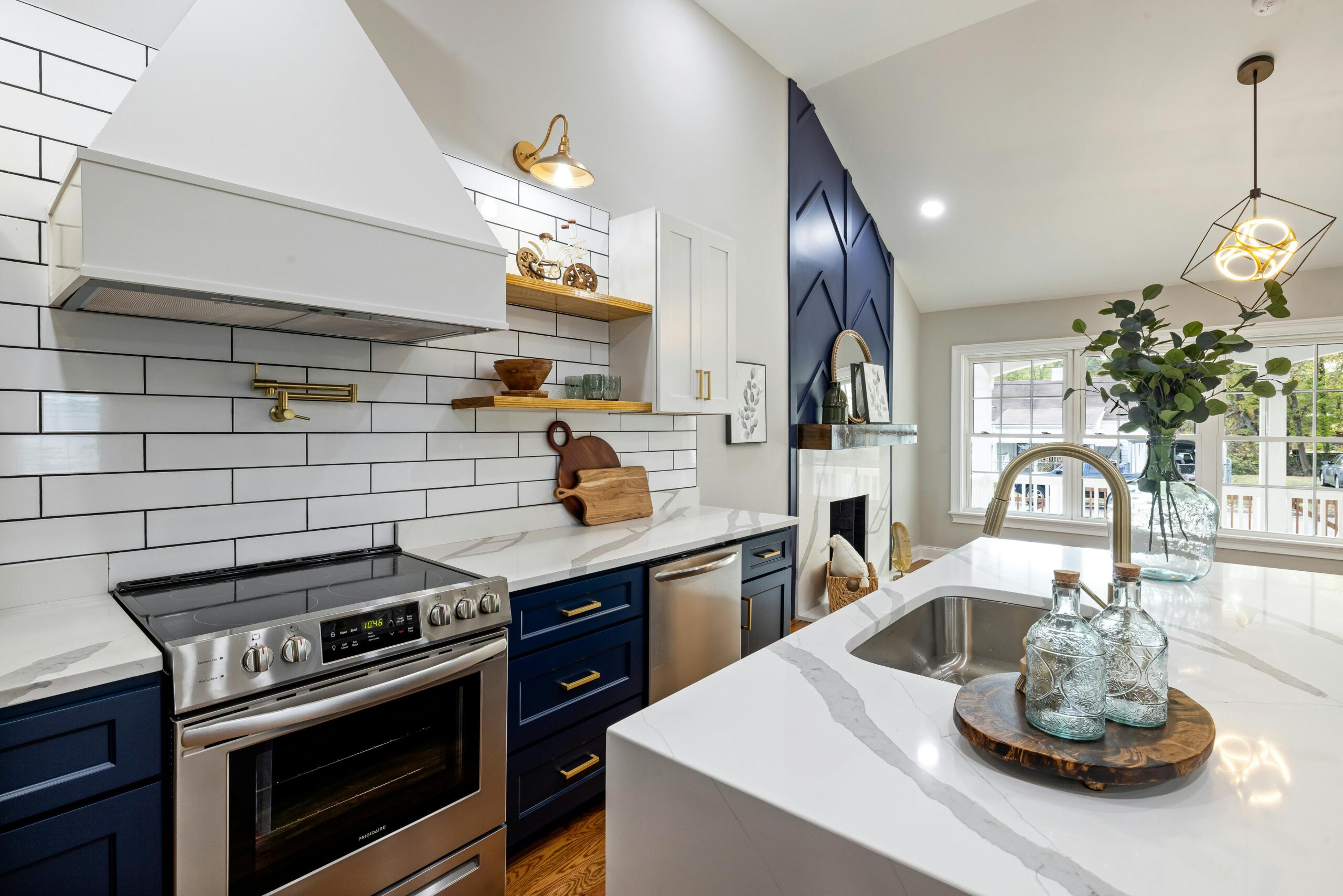An untidy kitchen would make cooking and kitchen preparation seem extremely overwhelming. But with the right tips, you can transform your kitchen into a stress-free, organized space. In this article, we’ll guide you through simple steps to declutter your kitchen, making it a more functional and enjoyable place to cook.
Table of Contents
Toggle1. Empty Your Kitchen Cabinets and Drawers
The first step in decluttering your kitchen is to empty out your cabinets and drawers. This may seem like a big task, but it will give you a clear picture of what you have, and what you truly need.
Why Emptying is Important
- See everything: You can see all the items you own and assess if they’re still useful.
- Create space: You’ll have a better idea of how to organize your items later.
2. Sort and Donate Unnecessary Items
Once you’ve emptied your cabinets and drawers, start sorting through your kitchen items. It’s easy to accumulate tools, gadgets, and dishes you never use. Sorting them into categories will help you decide what to keep and what to let go.
Categories for Sorting
- Keep: Items you use regularly, such as pots, pans, and utensils.
- Donate: Items in good condition that you don’t use anymore, like extra plates or gadgets.
- Toss: Broken or expired items that can no longer be used.
Why Sorting Helps
- Clear space: Removing unused items creates room for the things you truly need.
- Better organization: When you keep only what’s necessary, it’s easier to organize your kitchen efficiently.
3. Organize Your Cabinets and Drawers
Now that you’ve removed unnecessary items, it’s time to organize the things you’re keeping. Good organization makes your kitchen more functional and accessible, reducing the stress of searching for items when cooking.
Tips for Organizing
- Use drawer dividers: Keep utensils, cutlery, and small items separated and easy to find.
- Group similar items: Store pots and pans together, and place baking items in one section.
- Label containers: If you use storage containers for spices, grains, or dried goods, label them clearly.
Why Organization Matters
- Saves time: You’ll spend less time searching for things and more time enjoying your meals.
- Reduces stress: An organized kitchen helps create a calm cooking environment.
4. Declutter Your Countertops
Counter space is often the most cluttered area in the kitchen. A cluttered countertop can make your kitchen feel smaller and less inviting. Clear off the unnecessary items and leave only the essentials.
What to Keep on Your Countertop
- Essentials: Keep your coffee maker, toaster, or any appliances you use daily.
- Decor: Add a small plant or a decorative bowl with fruit to make your kitchen look welcoming.
- Avoid overloading: Limit the number of items on your counter to avoid feeling cramped.
Why Countertop Clutter is Problematic
- Reduces space: Too many items can make your kitchen feel cluttered and smaller.
- More cleaning: A cluttered countertop requires more frequent cleaning and dusting.
5. Use Vertical and Hidden Storage
When dealing with a small kitchen, utilizing vertical space and hidden storage areas can make a huge difference. This can free up space in your cabinets and on your countertops.
Storage Ideas for Small Kitchens
- Install shelves: Use wall-mounted shelves to store spices, jars, or cookbooks.
- Use pull-out cabinets: Hidden pull-out drawers are great for storing larger items like pots, pans, and cutting boards.
- Overhead storage: Hang pots and pans from a ceiling rack to free up cabinet space.
Why Vertical and Hidden Storage Helps
- Maximizes space: You’ll make the most of your kitchen’s layout without crowding surfaces.
- Increases accessibility: Storing things at eye level or within easy reach makes cooking more convenient.
6. Keep Your Kitchen Clean Regularly
Once you’ve decluttered and organized your kitchen, it’s essential to keep it that way. A regular cleaning routine will help maintain the clutter-free environment and make it easier to cook.
Cleaning Tips for a Tidy Kitchen
- Clean as you go: Wash dishes and wipe down counters while cooking to prevent buildup.
- Wipe down surfaces daily: Clean countertops, stovetops, and sinks to keep the kitchen fresh.
- Empty the trash regularly: Don’t let trash pile up, and empty it at least once a day.
Why Regular Cleaning is Key
- Prevents mess: Cleaning regularly prevents clutter from building up again.
- Creates a fresh environment: A clean kitchen feels inviting and ready to use at any time.
Final Thoughts
Decluttering your kitchen doesn’t have to be a stressful or overwhelming task. By following these simple tips—emptying cabinets, sorting unnecessary items, organizing your space, clearing countertops, and maintaining regular cleaning—you can create a stress-free, organized kitchen that’s functional and enjoyable to work in. Start small, and soon you’ll have a kitchen that feels calm, efficient, and easy to use every day.

